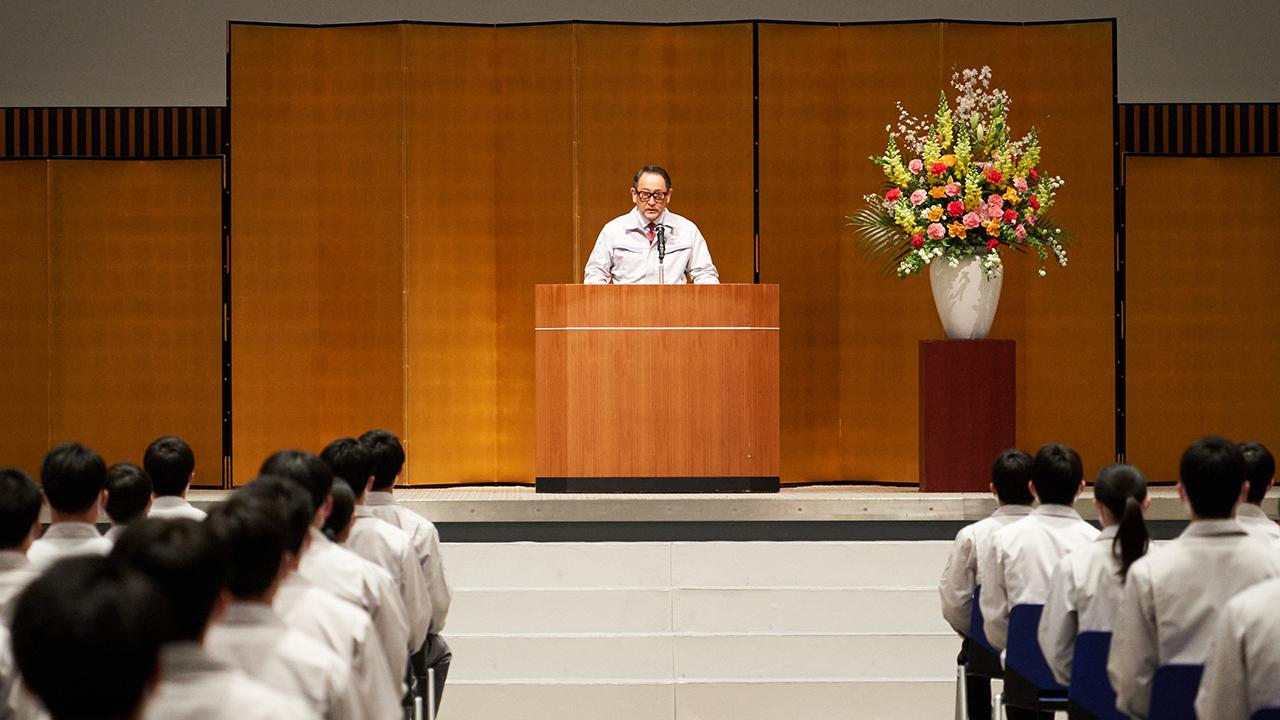
2022 Graduates of the Toyota Technical Skills Academy display the strong sense of purpose they developed during their time at the Academy amid the COVID-19 pandemic. Learn about the unique experience which is sure to guide them as future Toyota leaders.

On February 15, Toyota’s in-house training facility, the Toyota Technical Skills Academy held its annual graduation ceremony. The graduates developed a strong sense of purpose after dealing with two years of drastic changes to their daily lives due to the COVID-19 pandemic and being forced to spend their school days under numerous restrictions on daily activities.
"We will not forget to appreciate others and do our best to overcome obstacles."
Ruito Watanabe was unable to hold back his tears during his graduating class representative speech as he thanked his instructors and mother, who lives far away. Reflecting upon his three years at the Academy, he spoke about how the difficult times during the pandemic influenced his thinking in moving forward. (See below video for his speech.)
As with the previous year, only graduates and instructors attended the graduation ceremony. After careful consideration, COVID-19 safety precautions were given top priority, and the event was streamed online for family to watch.
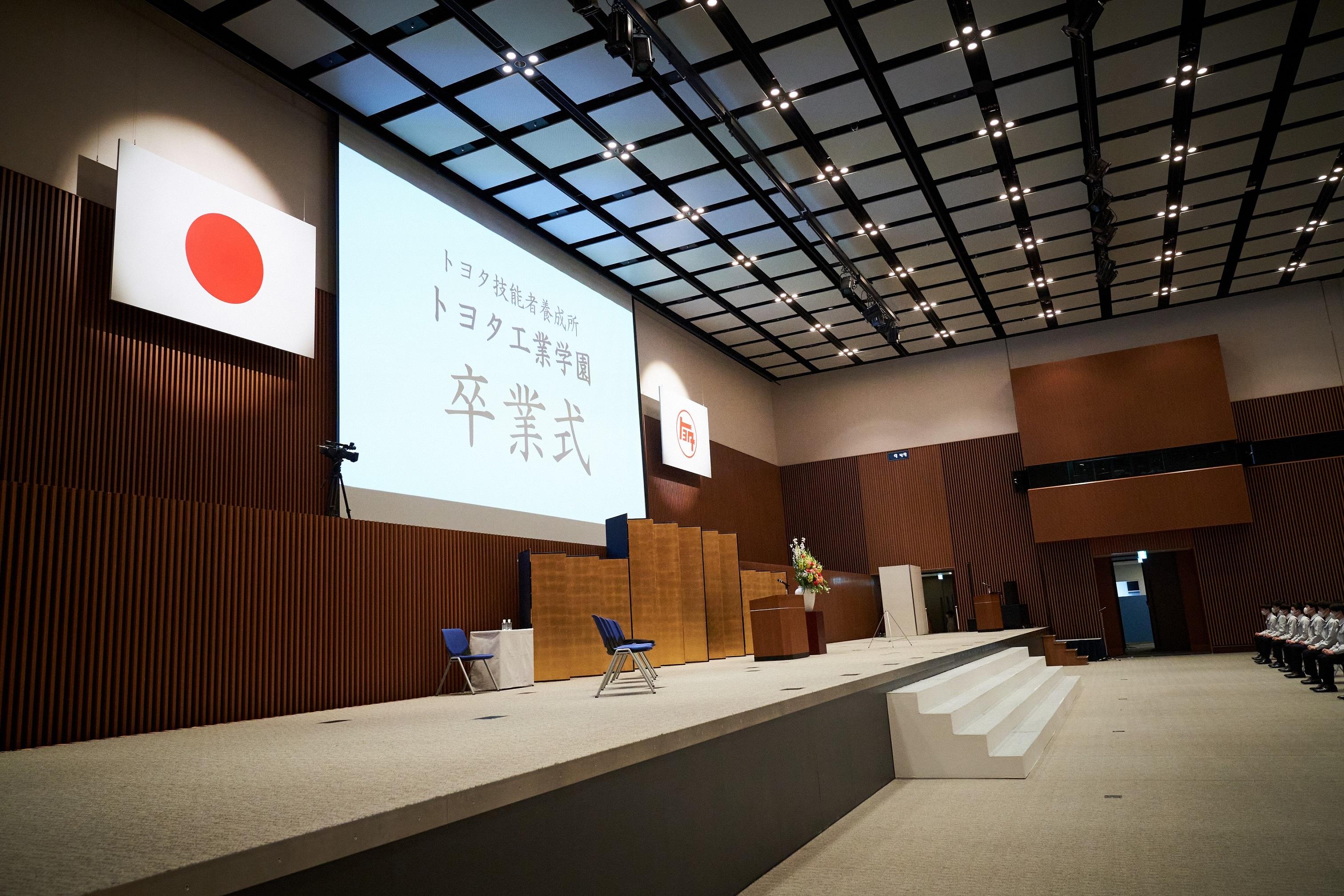
As the majority of students hail from prefectures far from the Academy’s home in Aichi Prefecture, they must live apart from their families in dormitories. That is surely one reason graduates want their parents to see them at their finest in person so they can express their gratitude directly.
Even though they could not do it in person, students still offered many warm words of gratitude. “I wanted my junior classmates and parents to be with me here; but I am still grateful that we could have the ceremony.” “I realized just how many people are involved in organizing the graduation ceremony, and I was overwhelmed with gratitude.”
Watanabe ended his speech with a resolution. “Even if we face difficult situations going forward, we will not forget to appreciate others and do our best to overcome obstacles.” This unshakeable vow rooted deep in his heart after being robbed of so much freedom by COVID-19 was clearly heartfelt.
"Thank you for raising me."
Watanabe, raised by a single mother, was 15 years old when he joined the school and came to live in the dormitory in Toyota City, far from his home in Tochigi Prefecture.
“It was probably lonelier for my mother than I realized when I left to live in the dormitory. Even now, in my third year, we stay in daily touch via the LINE messaging app, and I have realized how much she loves me,” he says.
He also shared his feelings in his graduation speech, “I am sorry for the trouble I caused you by choosing to study so far from home, and I want to thank you for raising me.” After the ceremony, Watanabe received a message from his mother.
Congratulations on your graduation! I feel I haven’t done enough for you as a parent even on your special day. I wish I could tell you in person how proud I am of all you have done. Thank you so much for your message filled with love.
The gratitude Watanabe expressed in his speech was well received by his mother on the other end of the camera.
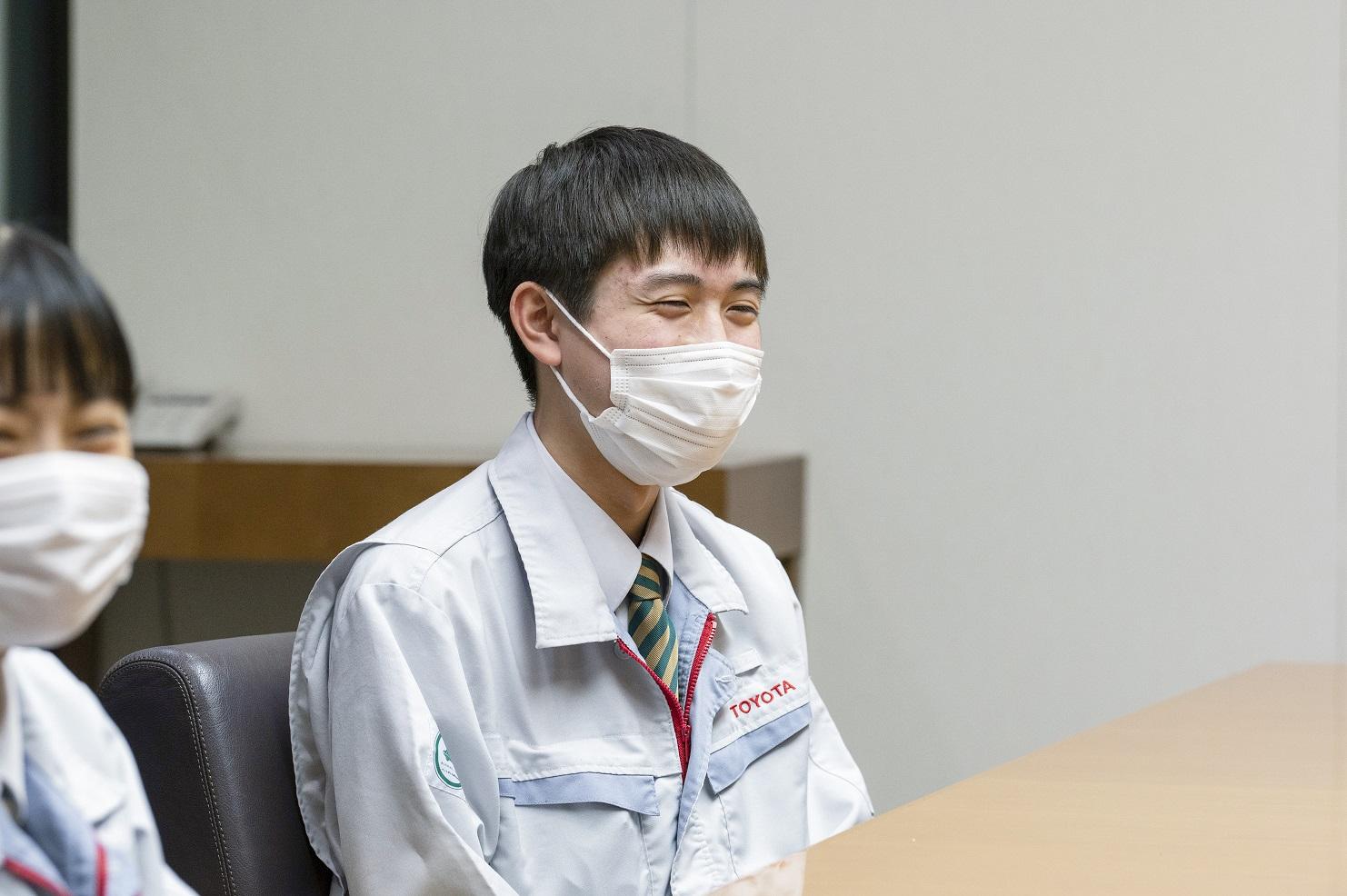
Watanabe said he felt slightly lost when he first entered the Academy. The dormitories did not yet have private rooms, as they now do, so he shared a room with four senior students. He initially struggled with the strict way his seniors taught him discipline.
However, after becoming a third-year student himself and put in a position to teach others, he realized those seniors were being strict out of consideration for him. Understanding the Academy’s tradition of being direct when providing feedback to colleagues, Watanabe said with a smile, “I think Toyota likes people.”
From student council to a group of students who guide themselves as they grow
Together with his colleagues, Watanabe brought changes to the Academy, replacing the Japanese name of the student council with one that meant a “group of students who guide themselves as they grow.” He talked about that process.
Watanabe
Our instructors often told us, “You are a little different than regular teenagers; you are being trained to be the future core of Toyota.” With that in mind, I gradually began to feel the name of the student council (“Seito Kai” which simply meant council by students) did not fit well.
So, I worked to have the name changed from “Seito Kai” to “Gakusei Kai,” which meant a group of students who guide themselves as they grow. The idea for the name change was discussed with all the students of the same year.
Up to that point, our decisions had been led by council leaders; however, once we changed the name, we wanted all members to work together as one organization. We submitted a request form to the head of the Academy stating such thoughts. We even changed our constitution to change the way the organization worked.
Yumi Takata, Gakusei Kai’s vice-president, worked with Watanabe on this organizational change. She said, “I have acquired patience and the ability to get others involved because we have had training unique to the Academy.”

Trimming and clearing shrubbery beautified more than the town.
Takata says that the experience of community cleanup was a memorable one for her. After learning that some local communities in Toyota City were having difficulty cleaning up particular areas, the Academy students decided to take on the task themselves to show their appreciation for the local people.
However, the areas that required cleaning included muddy riverbanks with unstable footing and steep slopes that required rope harnesses. At first, the students were stumped and thought, “How are we going to cut the grass here? Honestly, it looks impossible.”
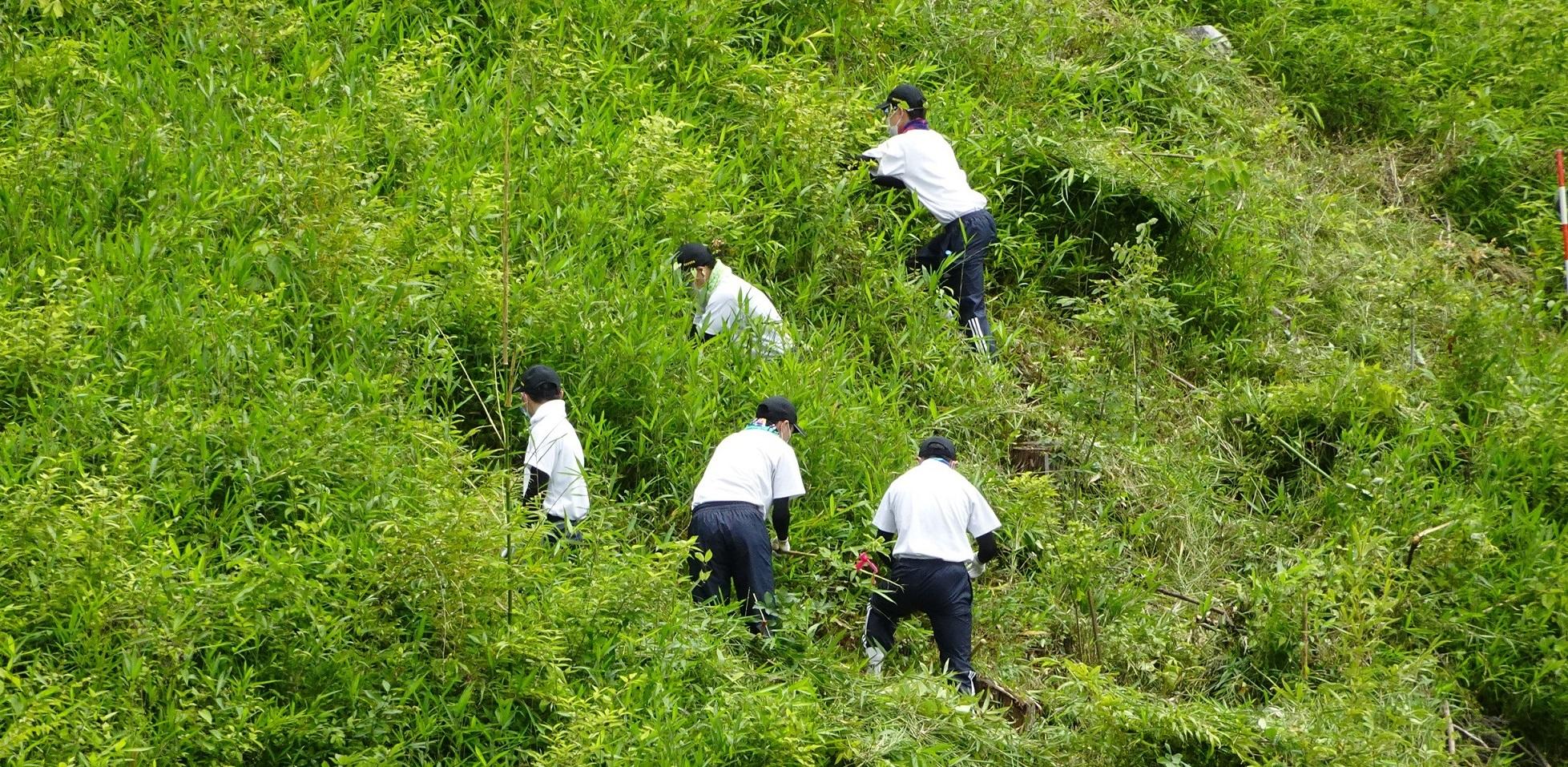
The students worked under harsh conditions, wearing masks in the extreme heat and at times enduring rain. Even so, they decided their own work plan and assigned roles for each individual—from cutting the grass to hauling debris away—based on the Toyota Production System. Thus, they established a safer and more efficient flow of people and materials.
While they were working, local people would pass by and express their gratitude, with some even bringing refreshments for the students. Through such warm words and kind gestures, the students undoubtedly felt the joy of taking action for others.
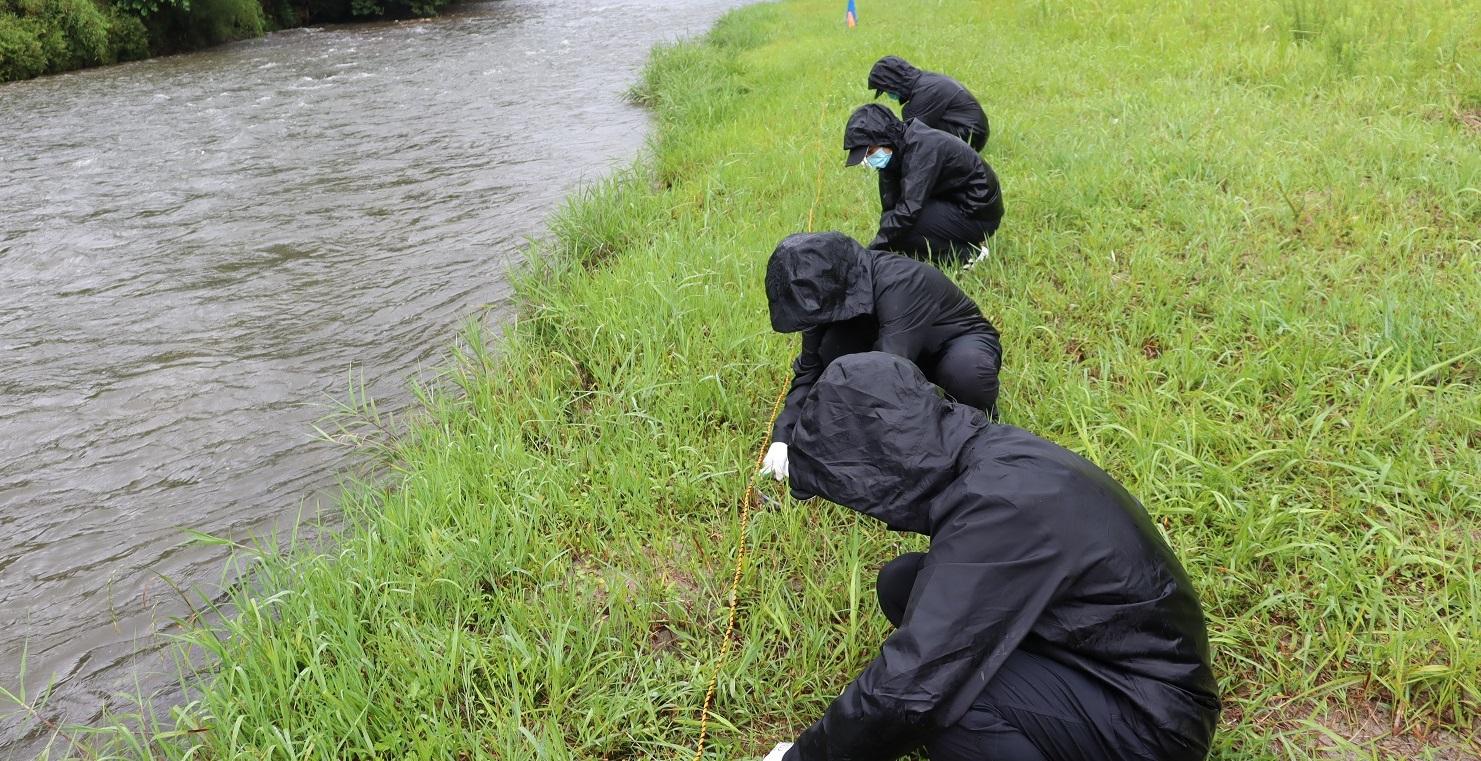
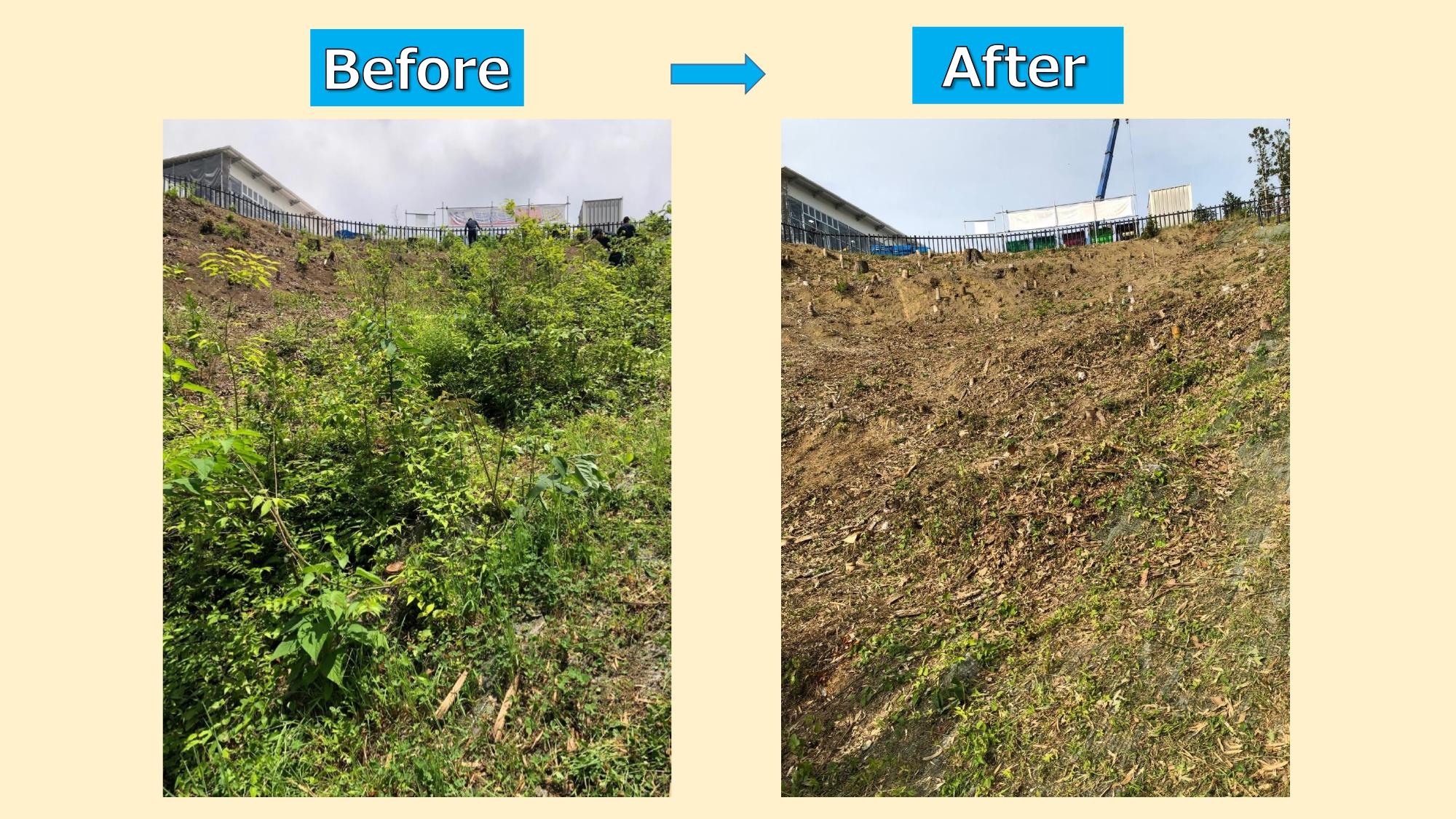
With a smile on her face, Takata said, “We gained a sense of unity in the class; I realized that I could enjoy tackling even the most demanding tasks with friends and colleagues by my side.”
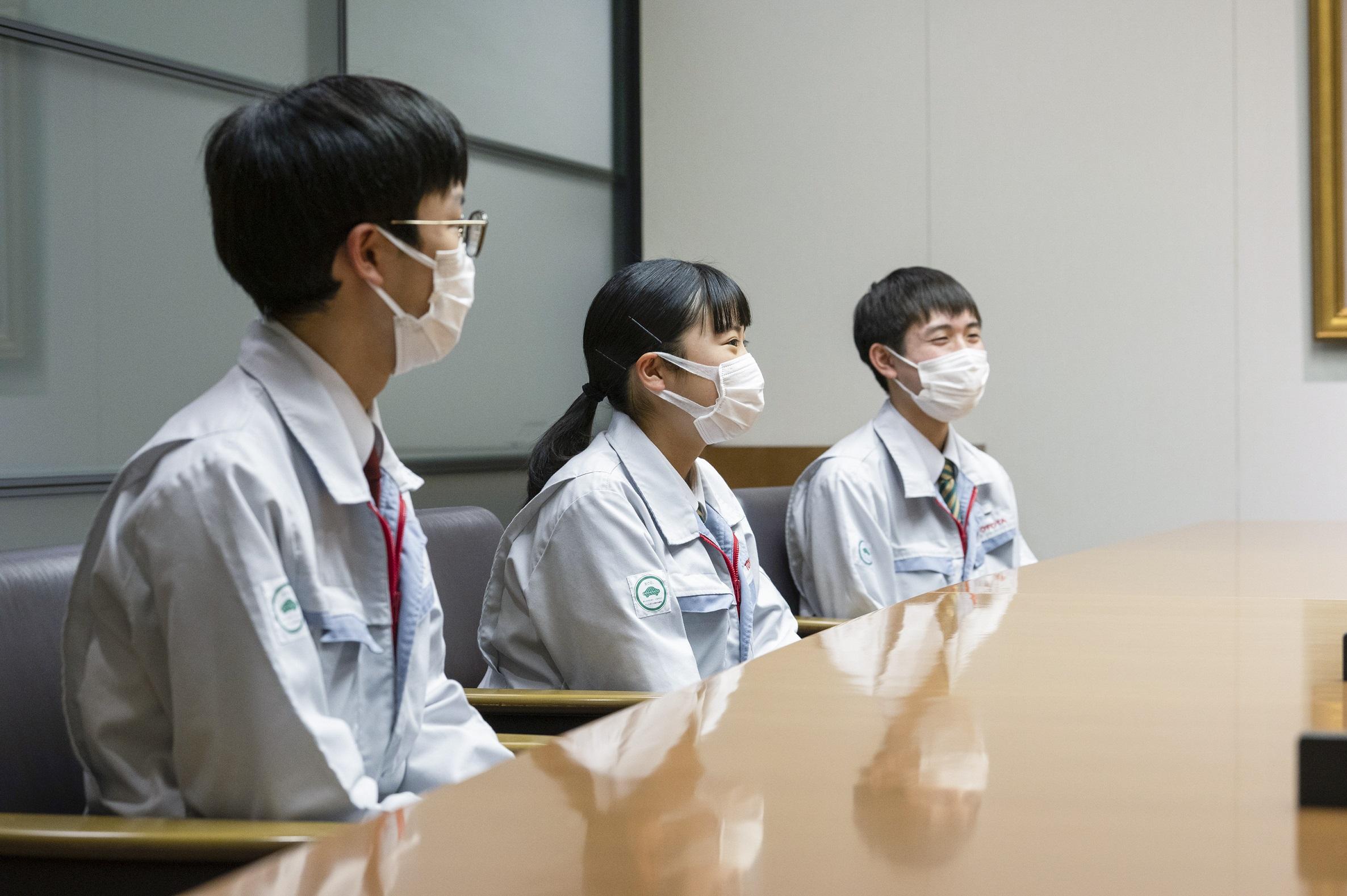
Toyota President Akio Toyoda also mentioned the clean-up activity in his speech at the graduation ceremony.
Akio Toyoda
Dear graduates, those of you in the High School Course had to spend two of your three years of school life dealing with the COVID-19 pandemic, while those in the Professional Course had to spend your entire year under these conditions. Even so, instead of looking down in defeat, you thought about what you could do now and took action.
Out of your desire to give back to the local community supporting you, all of you in the High School Course cleaned up parks and riverbeds while students in the Professional Course worked on cleaning assembly halls and hillsides. Despite the heat and rain, you cleared away overgrown weeds using unfamiliar tools, making the areas look unmistakably beautiful.
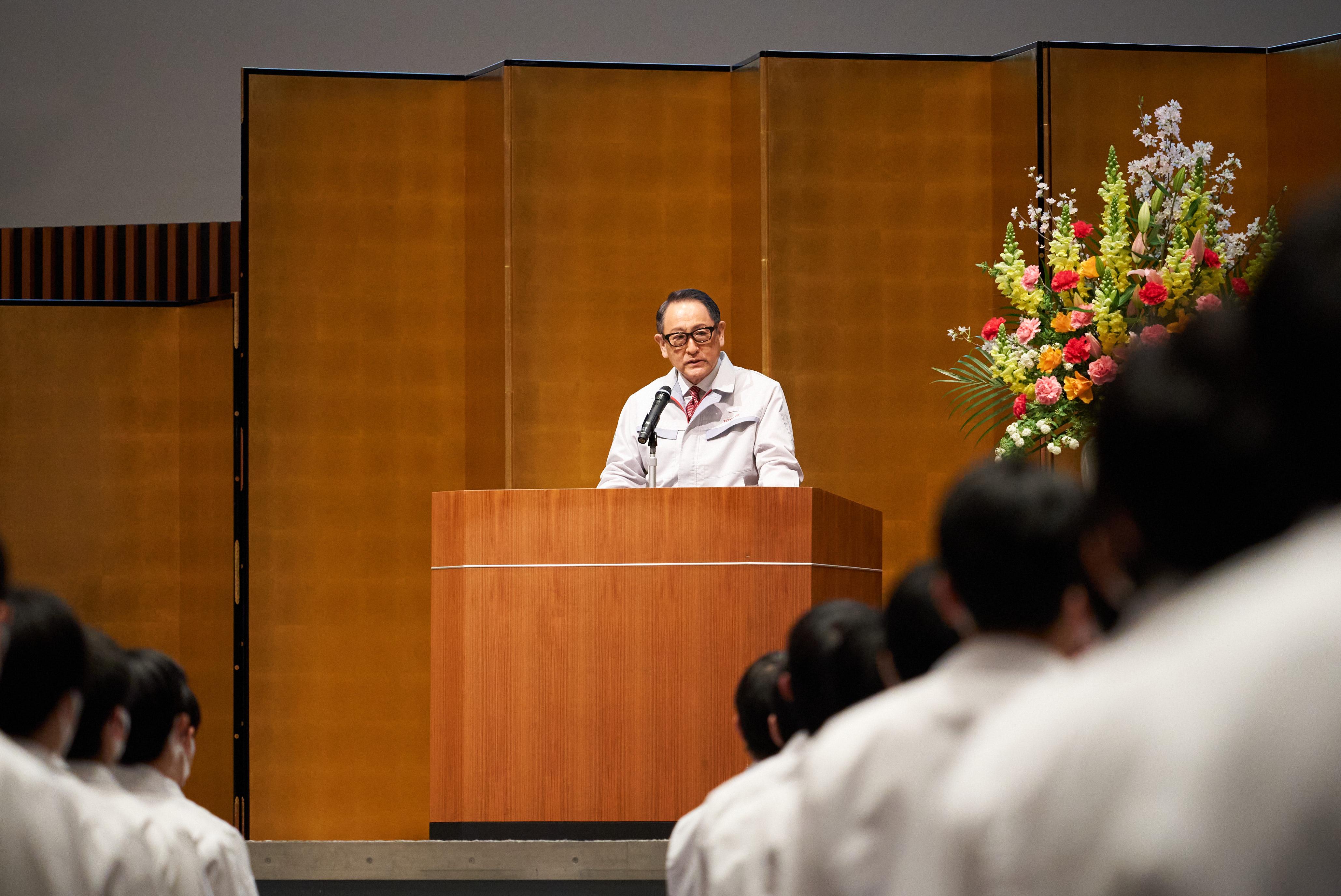
When a local community magazine covered these activities, the writer ended the article by stating, “I feel the students not only cleaned the public spaces of our community that needed care during the pandemic, but also cleaned our minds.”
The article stated why: the students greeted everyone cheerfully and energetically, even though they must have been tired after walking for over an hour to the location. Everyone lined up in a row, working earnestly and cleaning thoroughly, demonstrating good teamwork and dedication. The writer with you on location was moved to tears of gratitude seeing everyone’s serious attitude.
Thank you very much for working so hard for the benefit of others.
"Some efforts go unrewarded."
Takata said that one unforgettable phrase learned was, “Some efforts go unrewarded.”
Takata was the head of the women’s dormitory and had to organize the female students. However, the male students and instructors were not able to see how she worked in that capacity. When she worried that those people might never recognize her efforts, that is what one instructor told her.
She realized that it was important to work hard for the benefit of others in and of itself, not just for the sake of being rewarded. If a student had doubts or worries, the instructors were always present, putting forth the effort to support them.
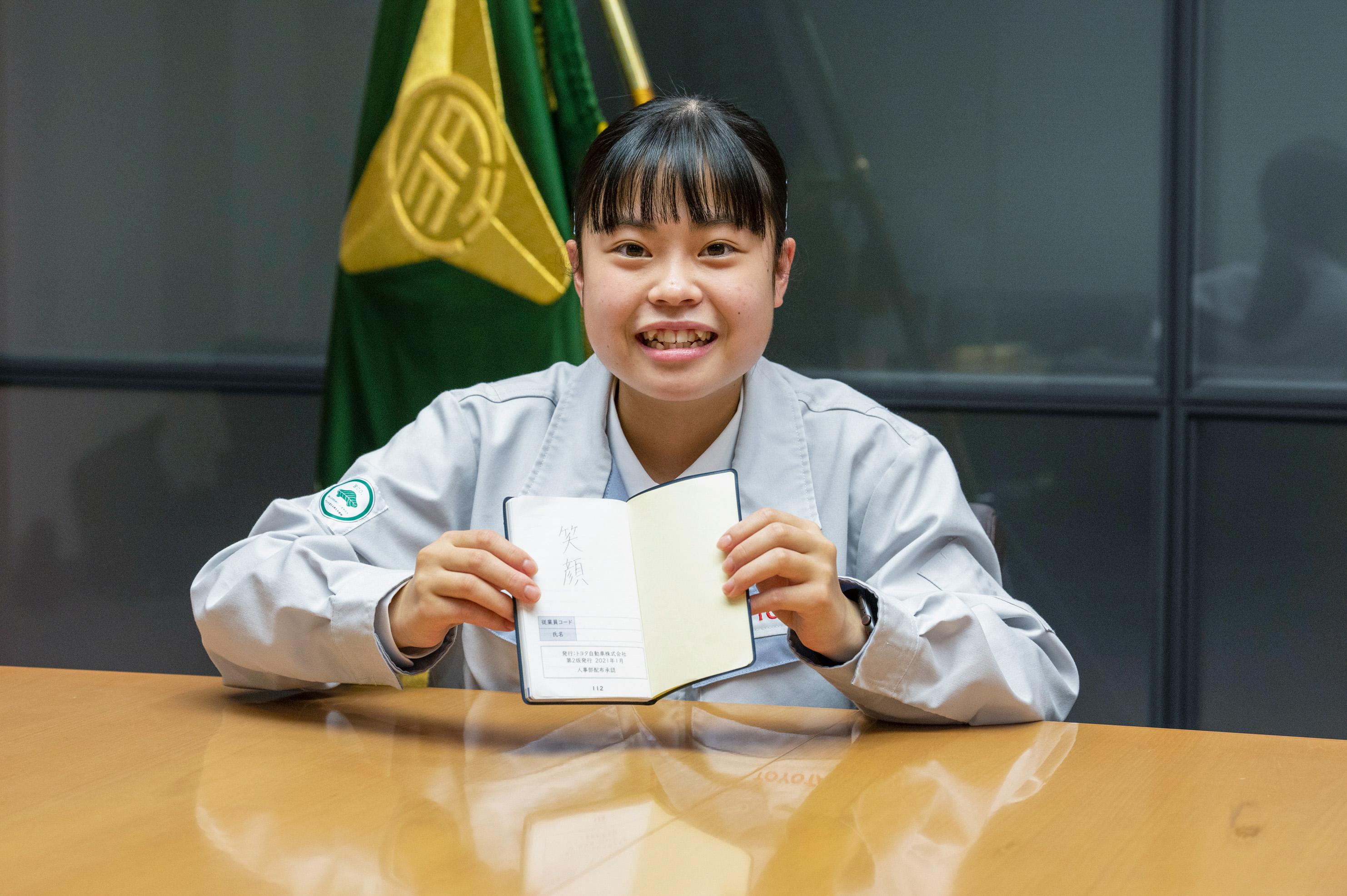
Takata’s father, also a graduate of the Academy, had been the one who encouraged her to enroll. With graduation approaching, she shared a message to him with a serious look in her eyes.
“Mother was sick, so you got up every morning at five to take care of my two siblings and I. I wish I had helped more with housework. After coming here, I finally learned to take care of myself. That is why I want to thank you for recommending this school to me. I will do my best to repay you for your sacrifices.”
Takata was chosen as a graduating class representative and took the stage to receive her diploma. It must have been a memorable moment for her father watching through the camera lens that day.
"Landing a secure job at Toyota is not how I repay my mother. Working for the benefit of others is."
Unlike the two High School Course students, Rin Ito entered the Professional Course after graduating from high school, aiming to become a specialist in advanced technology. He came in first for Japan at an international robotics competition during his high school years.
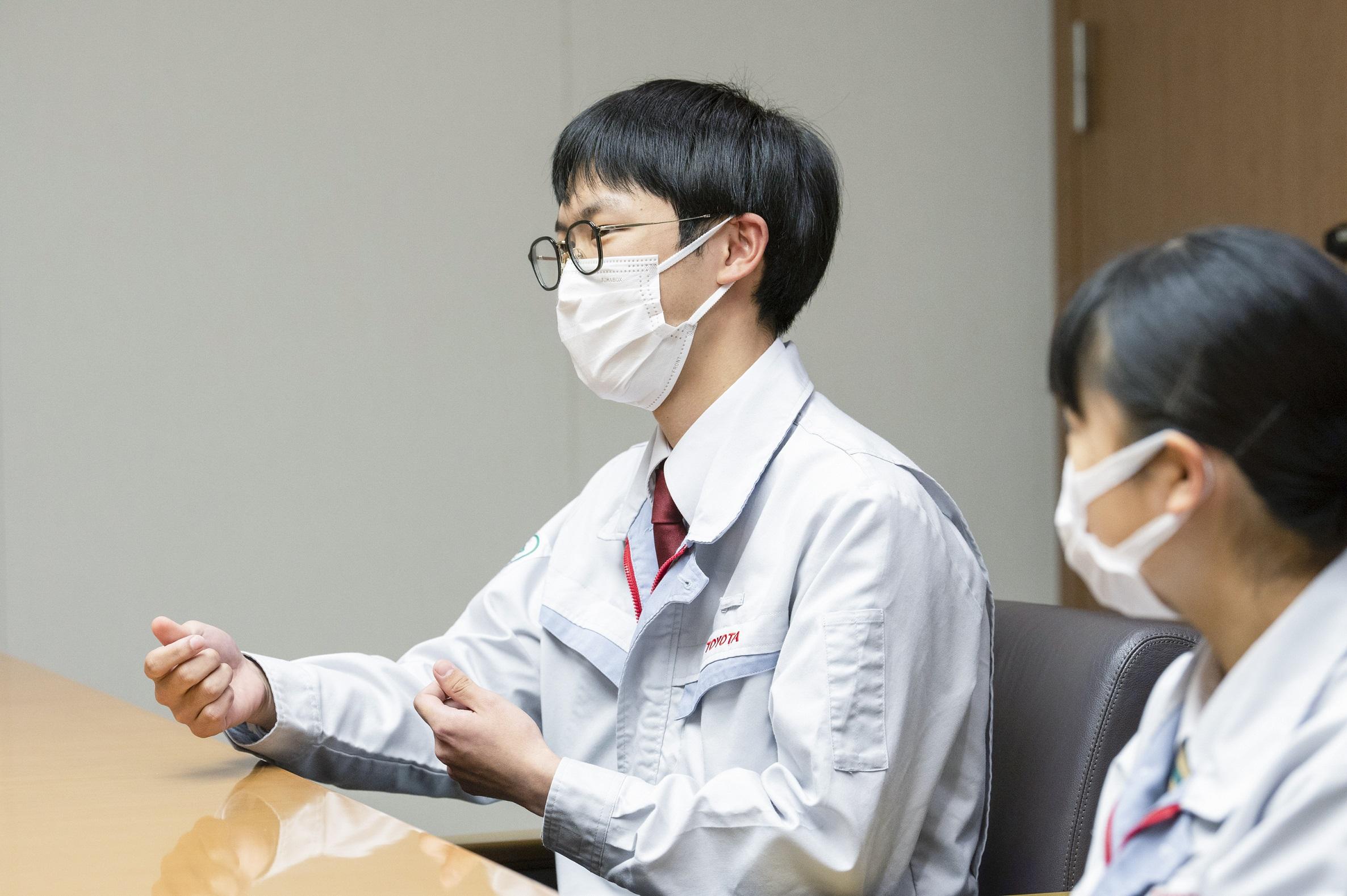
Ito aspires to become a global engineer. With the supportive words from his mother, who said, “You must follow your ambitions no matter where they take you to be able to do what you love,” he joined the Academy in Toyota City, far from his hometown in Ehime Prefecture.
As part of COVID-19 prevention measures, there were times all of his classmates had to stay inside the dormitory. Despite this, they engaged in activities that could be done indoors. He proposed suggestions to reduce waste and the number of hours required for a task on his own initiative, as well. Even though the pandemic limited his physical freedom, he used his ideas and knowledge to work hard by taking action for others.
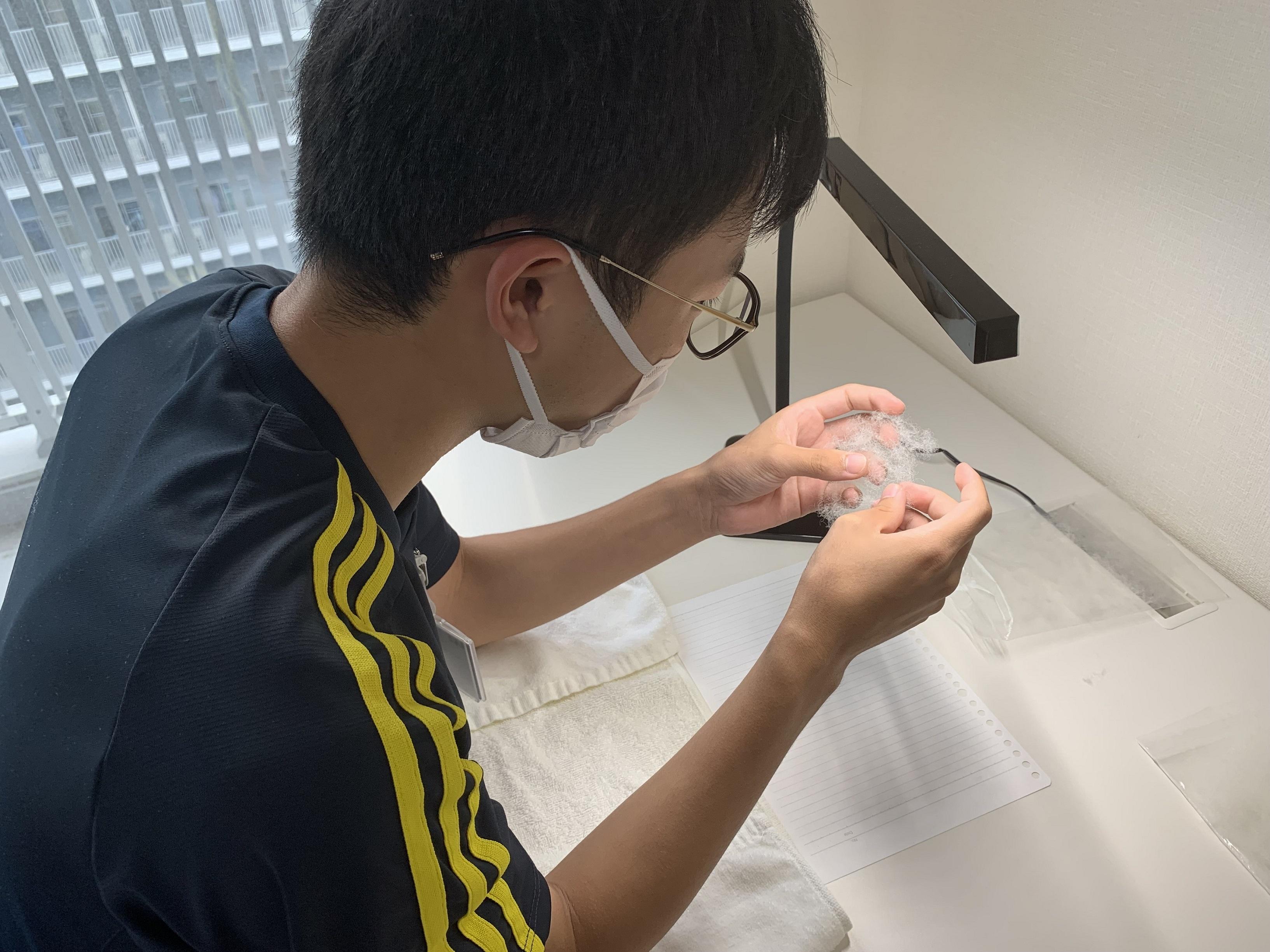
When asked about the difficulty of staying in his room when the Professional Course was only a year long, he replied, “No, because I was able to gain a sense of selflessness, I didn’t feel forced to take action. Making improvements is a never-ending challenge, and I enjoyed it. It made me happy to hear people say, ‘I’m glad we asked the Academy students to work on this.’”
The ordinary training program was tough, and there were times when he failed at a task and lost motivation. At such times, however, the instructors would say, “If you make a mistake, don’t stop; rather, think of it as an opportunity to learn.” He said the instructors were always there to support him in new challenges and created an environment in which the students could grow.
In physical education classes involving running, his instructor worked with him even on Saturdays to help meet the target time and offered words of encouragement saying, “If you achieve your time, we’ll take a ride in a GR Yaris together.” Unfortunately, Ito did not hit his target time and enjoy a drive with the instructor. He says that is his only regret.
“Taking on a single challenge is not what is important. What is important is to keep challenging yourself.” Ito is determined to always keep these words by his homeroom teacher in mind.

At the end of the interview, Ito shared a story about his mother in Ehime. “My mother was a single parent. She may be lonely in Ehime, but she never showed any sadness in her expression. Thanks to her, I’m moving forward on the path I want to take. I don’t think landing a secure job at Toyota is how I repay her; I believe working for the benefit of others is, so I want to keep challenging myself.”
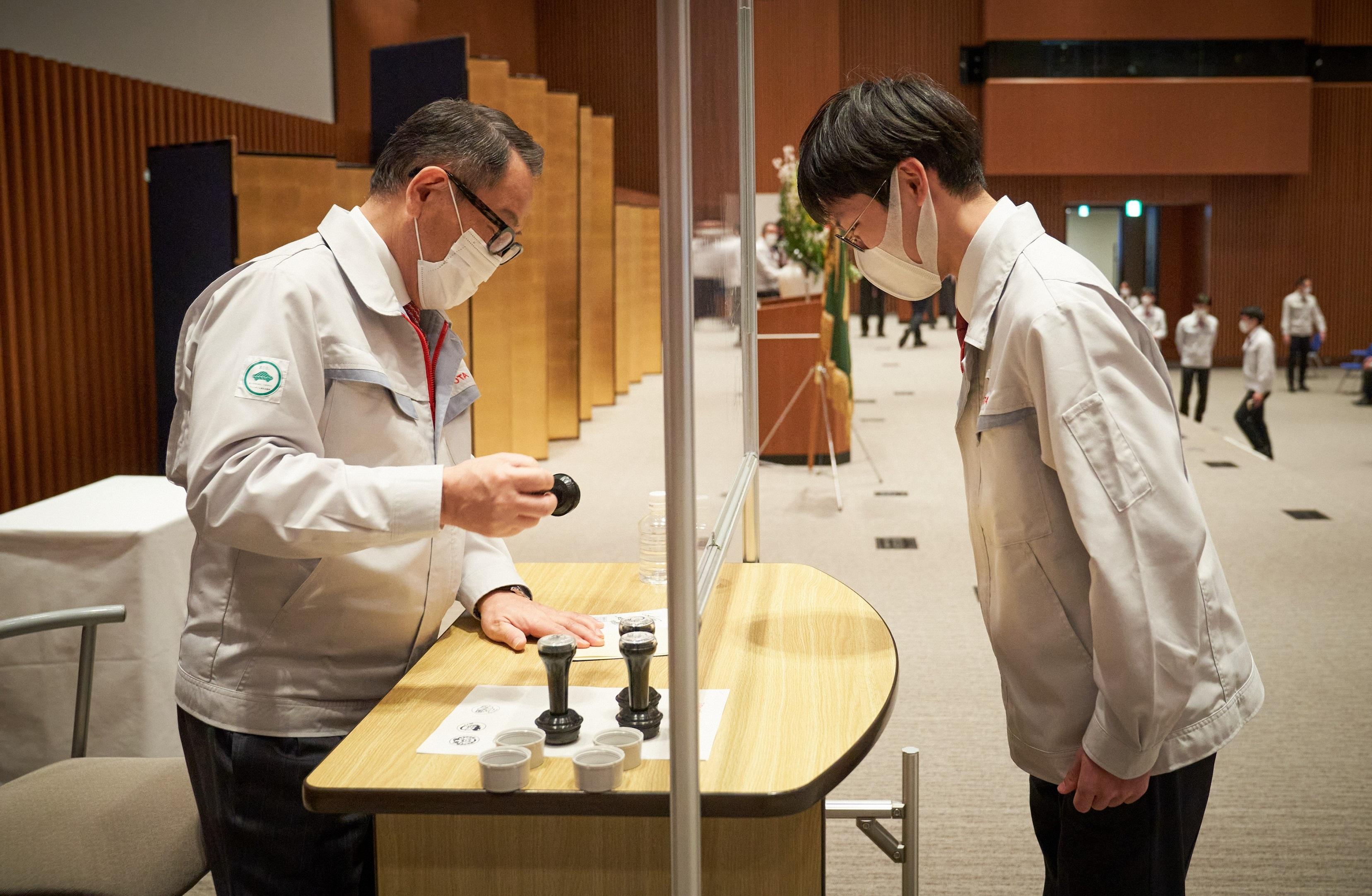
Akio Toyoda said he looks forward to the graduation ceremony each year. After the ceremony, he spoke with many of the students while looking at the pledges they had written in their employee handbooks, such as “Yes, safety comes first!” and “Be the best in the world at the WorldSkills Competition!”
Seeing the virtuous and principled behavior of the young students is an important opportunity for Akio to refresh his mind. This year, after hearing various stories about the students, he was impressed by one who immediately assisted a victim of an accident he witnessed on the way to school. “Daily training leads to how you act in an emergency,” says Akio.

The 117 students graduating from High School Course and the 116 graduates of Professional Course were assigned to their respective workplaces at Toyota two days after the graduation ceremony.
“As the youngest generation in the company and as respected Toyota employees, we will strive to become a driving force and work-ready team member in the workplace.” As promised in Watanabe’s speech, the ambitious young members have started a new life at Toyota from the spring of 2022.

